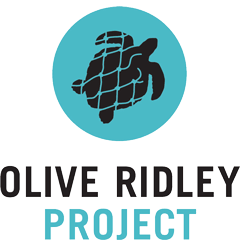The Olive Ridley Project opened the Marine Turtle Rescue Centre in Baa Atoll in February 2017 in partnership with Coco Collection, located at Coco Palm Dhuni Kolhu Resort. At the time of opening, it was the first fully-equipped, veterinary-run rescue centre for sea turtles in the Maldives. Today it is one of the most unique sea turtle medical facilities in the world where the majority of the patients are olive ridley turtles.
Sea Turtle Emergency – Maldives Only
If you have found an injured, sick or entangled sea turtle in the Maldives, please contact our 24-hours sea turtle emergency hotline: Call/WhatsApp/Viber: Maldives 955 2205
The Veterinary Team
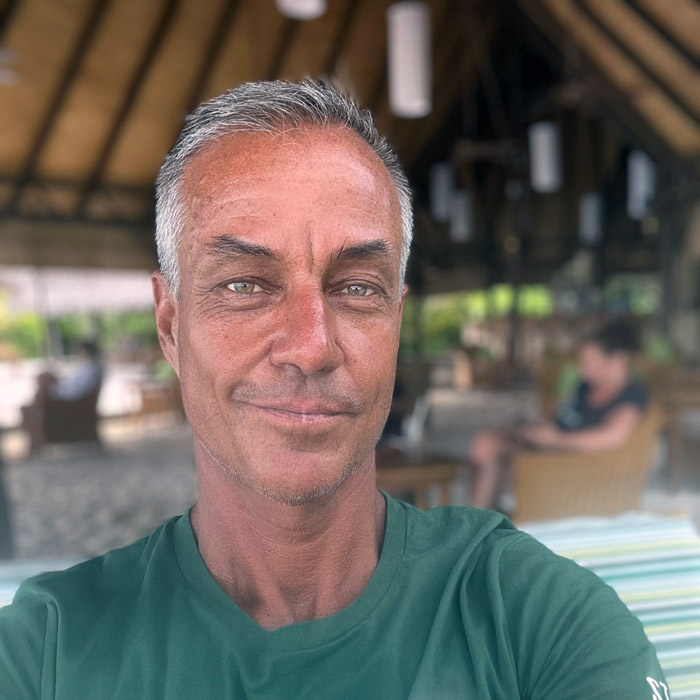


Our rescue and rehabilitation centres are managed by our Lead Veterinary Surgeon, Dr Max Polyak, who has has many years of experience in the sea turtle clinical and research worlds. The daily running of the Rescue Centre is carried out by a veterinary team which
includes a veterinary surgeon and an associate veterinary surgeon, an intern, and a team of one to three volunteers. We also have seasonal veterinary surgeons training with us (present between April and October) to help her take care of our patients.
The Clinic
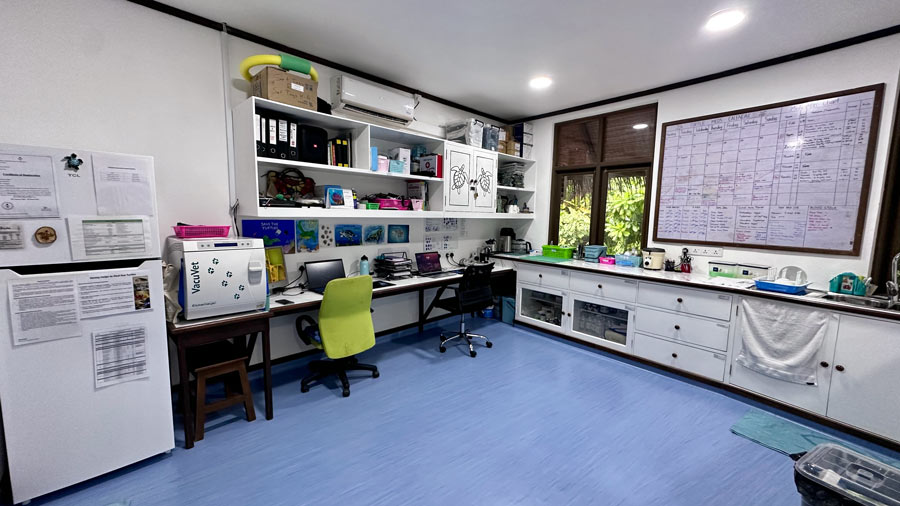
The clinic is the most advanced sea turtle medical facility in the Maldives. It is comprehensively equipped with a full blood laboratory, radiography, endoscopy, ultrasonography, Class 4 laser, and full surgical suite.
The laboratory allows us to culture bacteria and perform antibiotic sensitivity testing as well as analyse tissue and blood under the microscope in order to administer more targeted treatments for our patients.
We are able to triage and treat any injury or condition faced by sea turtles in Maldivian waters. In addition we serve both as a teaching and expert resource for other rescue centres in the country and region.
Approximately 60% of our patients have been successfully rehabilitated and released back into the ocean – an outcome that is excellent by wildlife medicine standards and that we continue to improve upon.
X-Rays
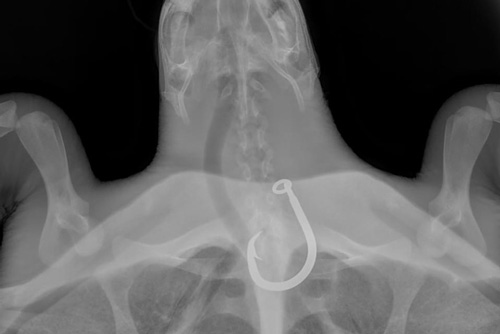
X-rays help us identify internal injuries and underlying health problems. They are especially useful for diagnosing buoyancy issues and lung disease, as air shows up very black on x-rays. It also helps us assess bone infections, bone damage, gastrointestinal blockages and visualising solid metal fishing hooks, which show up bright white. Every turtle patient undergoes screening X-rays on their arrival because turtles hide their issues so well and the x-ray gives us an insight into just what might be wrong.
Ultrasound
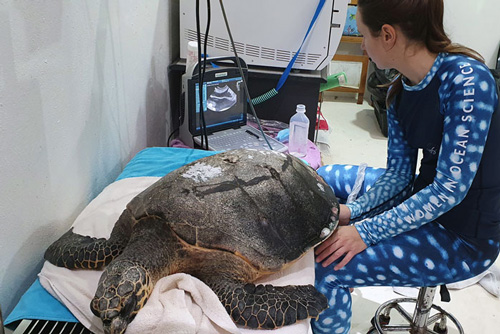
We also have an ultrasound machine, which is key to our assessment of soft tissues and internal organs and complements our X-ray diagnostics. Ultrasound works by sound waves bouncing off tissues of different density, making it an excellent way to assess internal organs, particularly the gastrointestinal tract which cannot be seen with X-rays. Ultrasound can also help us diagnose masses, foreign bodies like plastic, and fluid build-ups too.
Endoscope
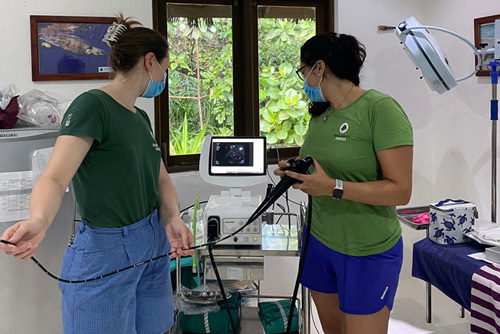
Our recently acquired endoscope is an incredible addition to our clinic, allowing us to diagnose our turtles’ issues with unprecedented accuracy and often minimally invasively. It can be used to grab and remove objects such as plastic or small hooks from the gastrointestinal tract with minimal trauma.
Many of our sea turtles suffer from buoyancy (floating) issues, often due to lung trauma from being entangled. Until now we have not had the tools to diagnose the root cause of their issues, let alone fix them. With our new endoscope, we will be able to return even more of these uniquely affected turtles to the wild, while also gaining valuable insight into this relatively poorly understood condition.
Surgery
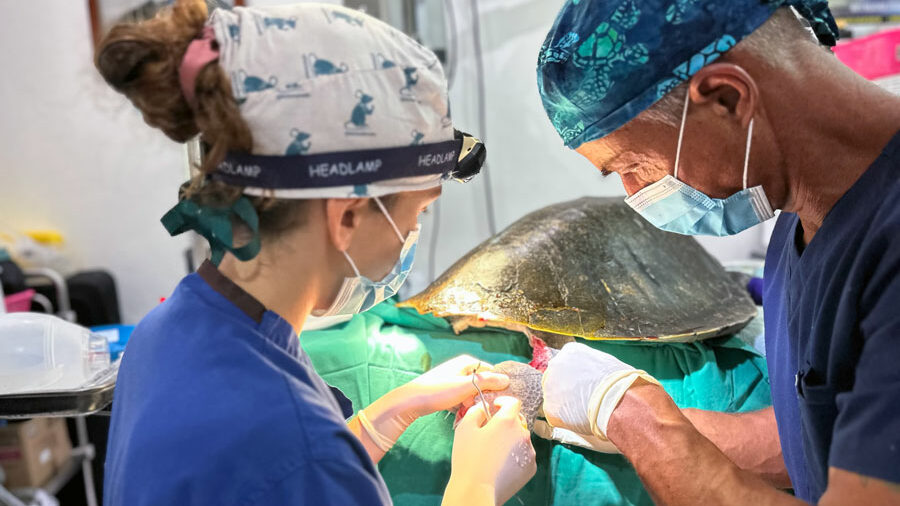
We perform surgery in our dedicated surgical room, where we have operating lights, a surgical table and an extensive surgical kit. We also have an autoclave to steam sterilise all our equipment and ensure optimal surgical conditions.
We are continually improving our facilities through fundraising for new equipment in order to meet our aim of gold standard veterinary care of sea turtles.
The Turtle Tanks
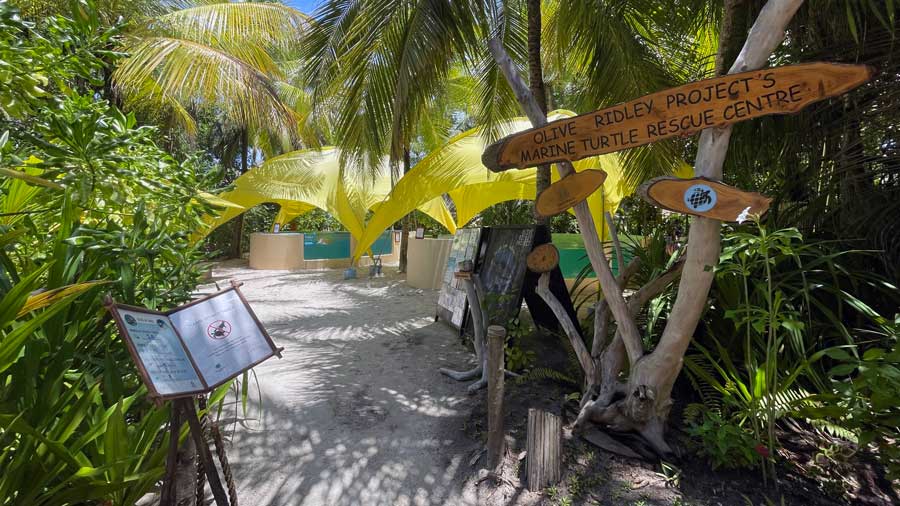
The Marine Turtle Rescue Centre has seven tanks. One large 7m x 5m wide pool with a depth of 2m, which is vital to encourage our patients to dive. The four medium tanks are 4m x 3m, with a depth of 2m. We also have 2 small shallow tanks that we use to triage our most severely injured turtles, and for the much smaller turtles that we rescue. These small tanks also serve as a recovery suite for turtles following anaesthesia.
The tanks are supplied directly by fresh sea water in a fully automated sand filtration and water-flow regulation system developed and designed by Coco Collection’s engineer team.
The system is designed to refresh the tank water continuously, meaning the water is always as fresh as it can be; a crucial component to the health and well-being of our patients.
This continuous flow of fresh sea water means we don’t have to add anything to the water to ensure its quality. We only use chlorine sparingly during cleaning. The tanks are cleaned multiple times a day to remove food debris and waste, and are fully drained and scrubbed once a week to remove algae and dirt.
The Patients
The Rescue Centre can accommodate up to eight turtle patients at a time, depending on size and the type of injuries. Although we have treated four out of five species of sea turtles residing in the Maldives (greens, hawksbills, olive ridleys and one loggerhead), sexually immature olive ridleys rescued from ghost gear entanglement make up the largest proportion of our patients (more than 85%).
However, we have also seen hawksbill and green entanglement victims too, so no turtle species is safe from ghost gear.
Other common reasons for admittance include marine debris and fishing hook ingestion, boat strike injuries, debilitation, stranding and being inappropriately kept as pets.
Volunteers & Visitors
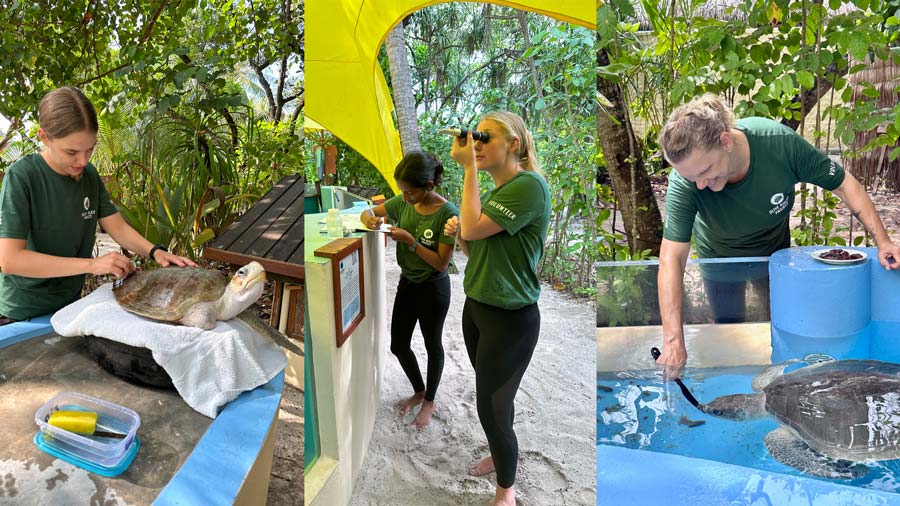
We run a sea turtle volunteer programme at the Marine Turtle Rescue Centre, as well as a veterinary training programme. The first one is open to anyone above the age of 18 and the second one is for qualified veterinary surgeons.
Guests at Coco Palm Dhuni Kolhu are very welcome to visit the Marine Turtle Rescue Centre between 9am & 5pm every day. Guests can also join us to watch the turtle feeding every morning and afternoon at 10.30am and 4pm.
The Founding & Funding
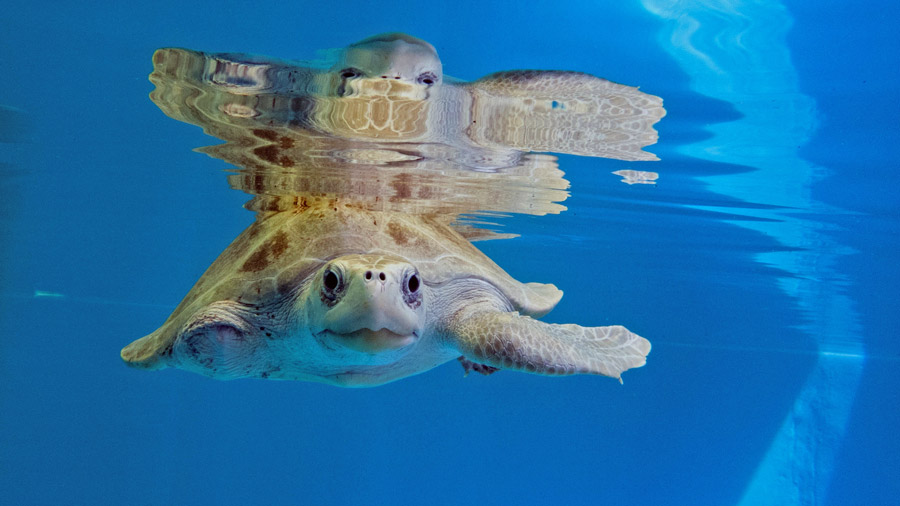
The Marine Turtle Rescue Centre was made possible thanks to the dreams, support and hard work of many people and organisations, and we are so grateful to everyone. We would also like to thank Coco Palm Dhuni Kolhu for hosting us and always supporting us, the Pacsafe Turtle Fund for an initial medical equipment grant, and OceanCare for funding medical equipment, medications, and veterinary services.
We are also hugely thankful to all our turtle patient adopters and donors who allow us to keep running the Rescue Centre. And last, but not least, to all our volunteers who help take care of our turtle patients.
We could not do it without you!








